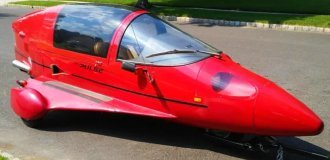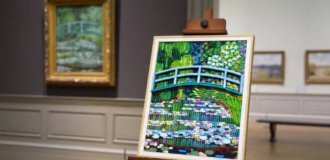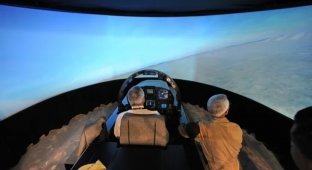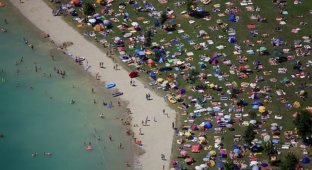1400-year-old fresco with two-headed men discovered in Peru (9 photos)
Two frescoes depicting two-faced men holding unusual artifacts, including a goblet from which hummingbirds drink, were recently discovered at the 1400-year-old archaeological site of Panyamarca in coastal northwestern Peru. 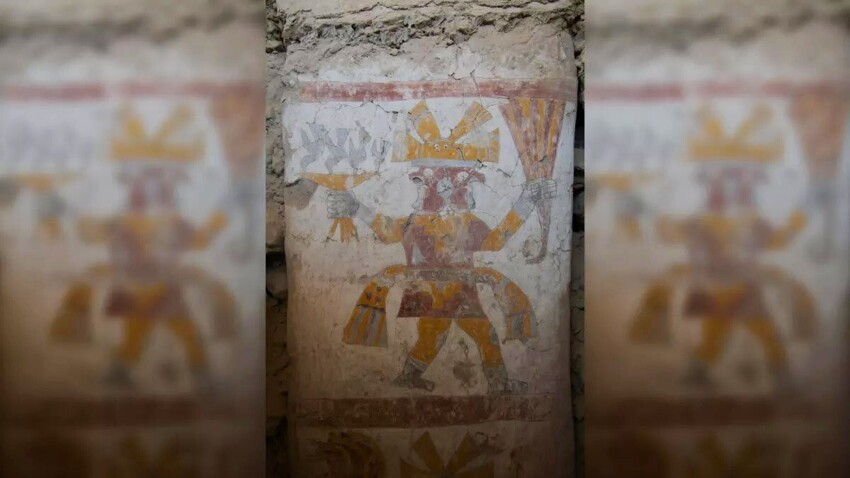
The frescoes were discovered by archaeologists in August 2022. Both the frescoes decorating the same column in the main hall are rich in details. One fresco, located at the top of the column, depicts a man with two faces, holding a fan of feathers in one hand, and in the other - a goblet from which four hummingbirds drink. 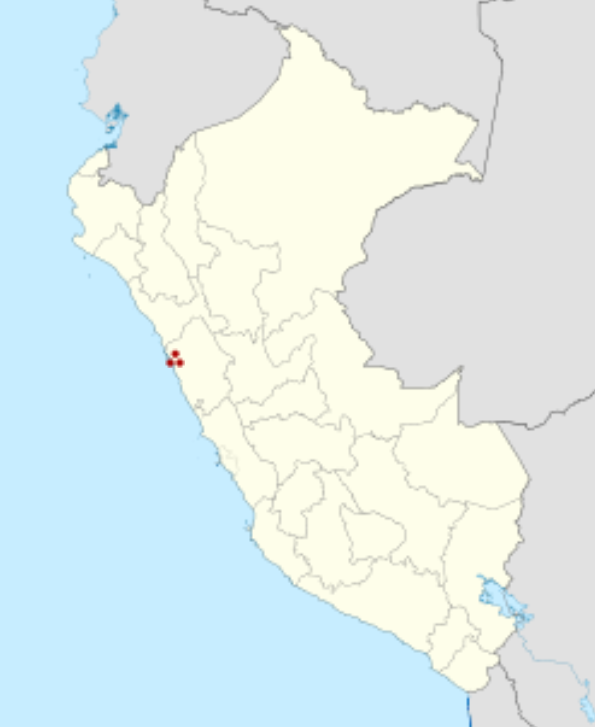
Location of Panyamarca on the map of Peru
The second two-faced, drawn below on the column, holds in in one hand a moving fan of feathers, and in the other a stick-shaped an item that is only partially preserved. 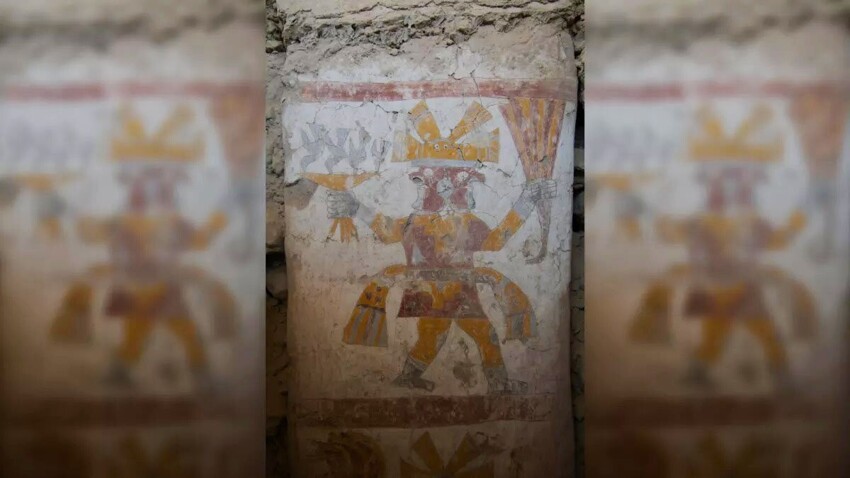
One of the two-headed men
Both men wear crown-like headdresses and bright, intricately patterned clothing with large belts. 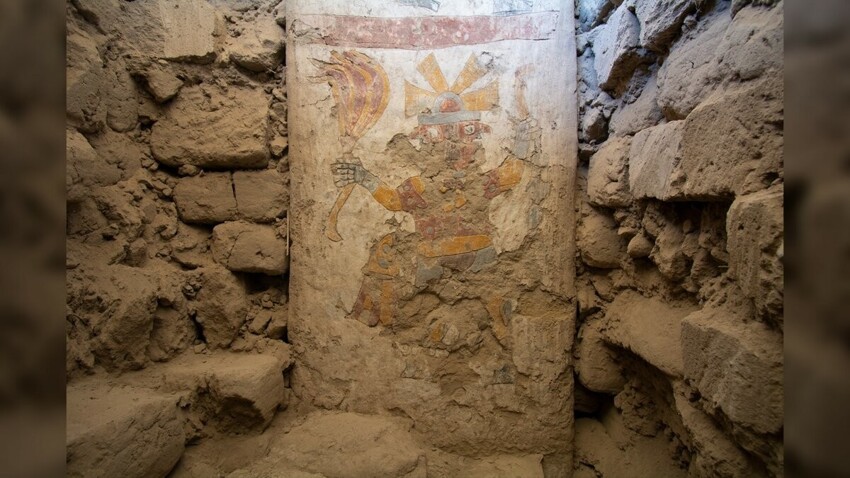
Second two-headed man
Why did the Moche (or Mochica) people depict these two men remains a mystery. Lisa Trever, Assistant Professor of Pre-Columbian Art History and Archeology at Columbia University, states that there is nothing similar in South American archeology. Maybe, artists thus tried to show movement and two narrative moments at the same time. 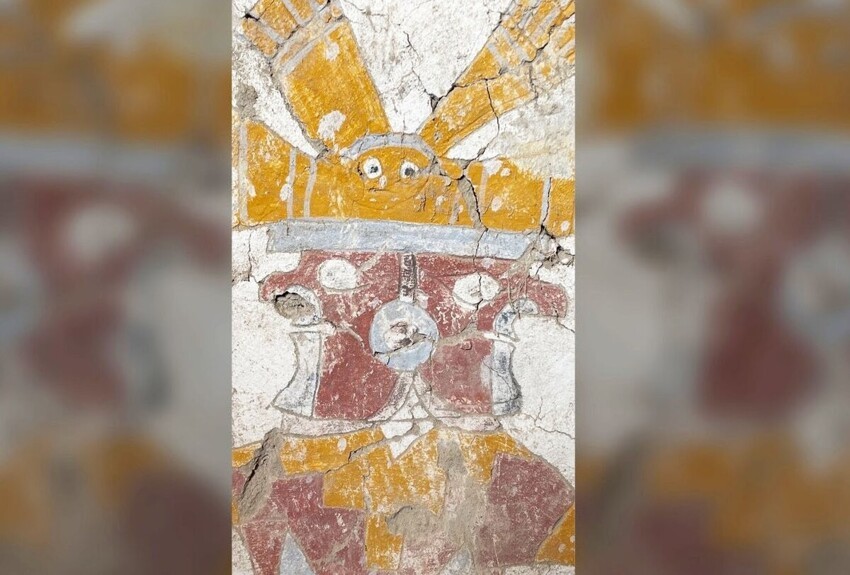
First two-headed man close-up
The frescoes were created between 550 and 800 AD - at that time the time when the Moche civilization flourished in the coastal regions of Peru or Moche. The Moche built huge temples, performed human sacrifices and created beautiful works of art from ceramics and gold. 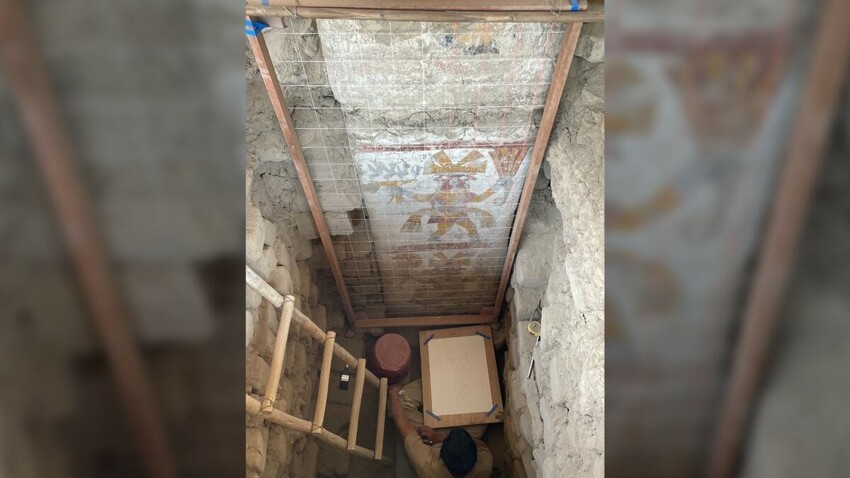
Top view of the column
Some experts believe that two-faced men can to be deities while others doubt it. Usually, depictions of deities in Moche art have non-human aspects such as like fangs, animal muzzles, tails or wings of various creatures. 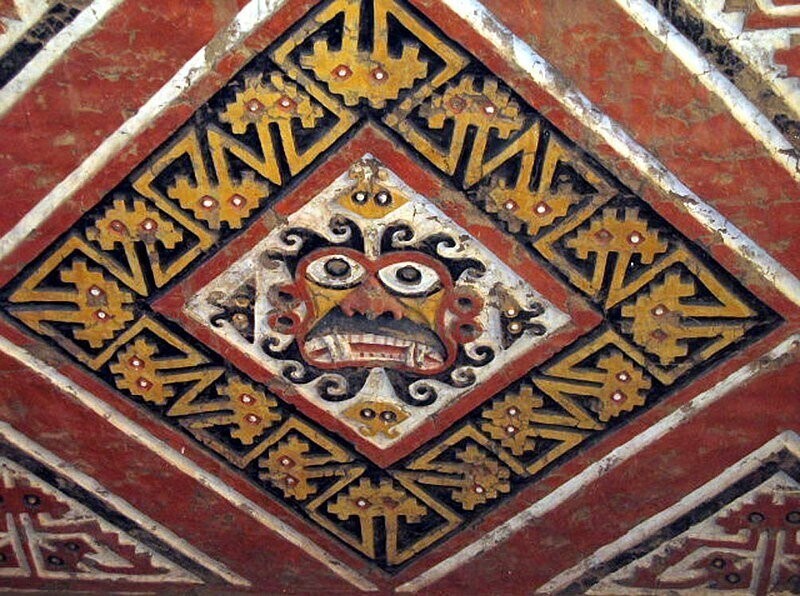
The Mochica god Ay Apaek is depicted on the wall of the Temple of the Moon in the La Libertad region
Panyamarca is an architectural complex located at the bottom part of the Nepeña Valley in Peru. In the hall with two-faced men there is also many other frescoes, including examples of a priestess, snake, and bat. Archaeologists have been studying it for over 60 years, after years of the last century, the first fresco was discovered. Despite decades of research, most of the hall has not yet been excavated, and, probably, other frescoes are waiting to be discovered. 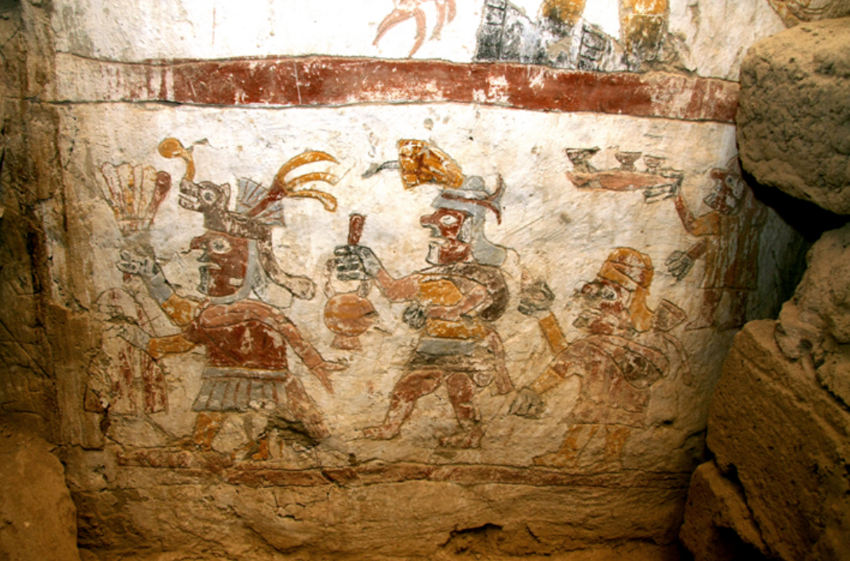
Other frescoes in Panyamarca
High density of frescoes on the walls and columns of the hall allow archaeologists to excavate and preserve only a small part buildings each field season. It is still unknown how Moche used this room. Archaeologists still have a lot of questions about architecture and functions of this building. It is unlikely that this was the place for public visit, given how narrow the aisles and the internal space. 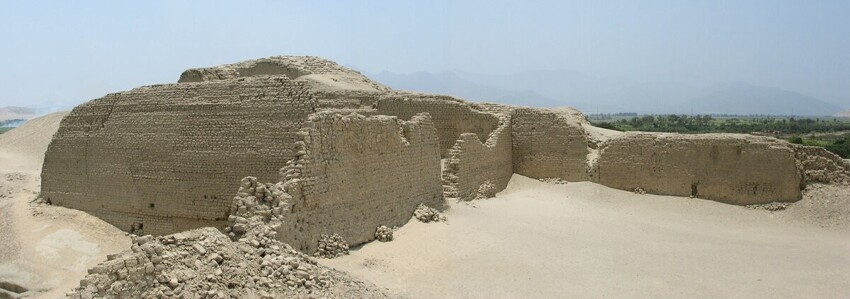
View of one of the buildings in Panyamarca
Archaeological excavations will continue and, perhaps, new interesting discoveries will await archaeologists in the future.




